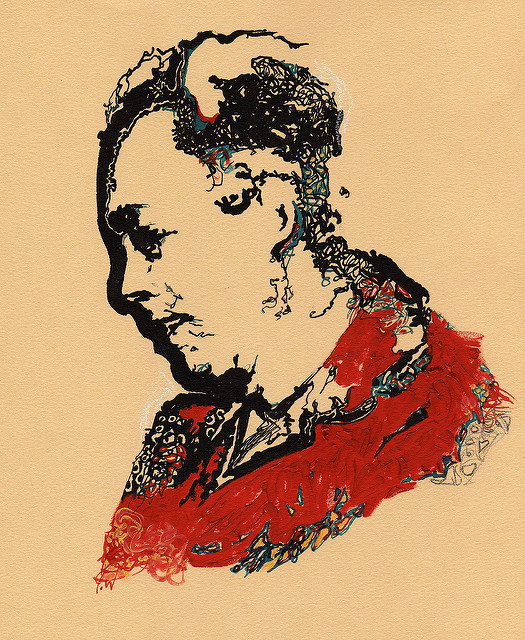His writing is intense and profound, like espresso, but a quadruple shot in strength and quantity. I suggest drinking some coffee or another caffeinated beverage when reading Camus.
The Rebel: An Essay on Man In Revolt was written in 1956; in 1957, Camus won the Nobel Prize for Literature.
He spoke boldly and honestly on the condition of man, or metaphysics. What is man and his/her/their place in this world?
These quotes give me the confidence to keep on going in difficult interpersonal relationships.
Particularly, they have made clear my need to forgive others who have hurt me. I used to respond by avoiding the person, but I never learned how to deal with it, instead running away and continuing to feel like the victim.
I think Camus would have included forgiveness as part of the act of rebellion. There is an open-heartedness and generosity in questioning what we are capable of—the shadow and light parts of ourselves we all possess.
Camus himself was not a white sheep. He had numerous love affairs, despite being married and having a family. I have to give Camus credit for being honest, because I don’t think many of us are if we really look inside ourselves. I was wrong for cutting people out of my life. I needed to put space and time between some people and myself, but I will eventually see them again.
When I do, I can be polite and work within my comfort zone while still being respectful. I can be righteous, but then I’d be alone, or I can forgive and accept that something happened I wished didn’t happen—that this world, this person is not perfect.
It is better to stay involved in this world, which includes the “bitter brew, harsh wind of the sea” from which we are born, and which remains “our first and our last love.”
~
“The real madness of excess dies or creates its own moderation. It does not cause death of others in order to create an alibi for itself. In its most extreme manifestations, it finds its limit, on which, like Kaliayev, it sacrifices itself if necessary. Moderation is not the opposite of rebellion. Rebellion in itself is moderation, and it demands, defends, and re-creates it throughout history and its eternal disturbances. The very origin of this value guarantees us that it can only be partially destroyed. Moderation, born of rebellion, can only live by rebellion. It is a perpetual conflict, continually created and mastered by the intelligence. It does not triumph either in the impossible or in the abyss. It finds its equilibrium through them. Whatever we may do, excess will always keep its place in the heart of man, in the place where solitude is found. We all carry within us our places of exile, our crimes and our ravages. But our task is not to unleash them on the world; it is to fight them in ourselves and in others. Rebellion, the secular will not to surrender of which Barres speaks, is still today at the basis of the struggle. Origin of form, source of real life, it keeps us always erect in the savage, formless movement of history.”
~
“Suffering, sometimes, turns away from too painful expressions of happiness.”
~
“At this limit, the “We are” paradoxically defines a new form of individualism. “We are” in terms of history, and history must reckon with this “We are,” which must in its turn keep its place in history. I have need of others who have need of me and of each other. Every collective action, every form of society, supposes a discipline, and the individual, without this discipline, is only a stranger, bowed down under the weight of an inimical collectivity. But society and discipline lose their direction if they deny the “We are.” I alone, in one sense, support the common dignity that I cannot allow either myself or others to debase. This individualism is in no sense pleasure; it is perpetual struggle, and, sometimes, unparalleled joy when it reaches the heights of proud compassion.”
~
“The mutual understanding and communication discovered by rebellion can survive only in the free exchange of conversation. Every ambiguity, every misunderstanding, leads to death; clear language and simple words are the only salvation from this death.”
~
“At this meridian of thought, the rebel thus rejects divinity in order to share in the struggles and destiny of all men. We shall choose Ithaca, the faithful land, frugal and audacious thought, lucid action, and the generosity of the man who understands. In the light, the earth remains our first and our last love. Our brothers are breathing under the same sky as we; justice is a living thing. Now is born, that strange joy which helps one live and die; and which we shall never postpone to a later time. On the sorrowing earth it is the unresting thorn, the bitter brew, the harsh wind of the sea, the old and the new dawn.”
~
Author: Stephanie Lee
Editor: Toby Israel
Image: Raphaël Labbé/Flickr
~
 Share on bsky
Share on bsky






Read 0 comments and reply